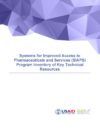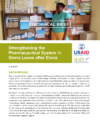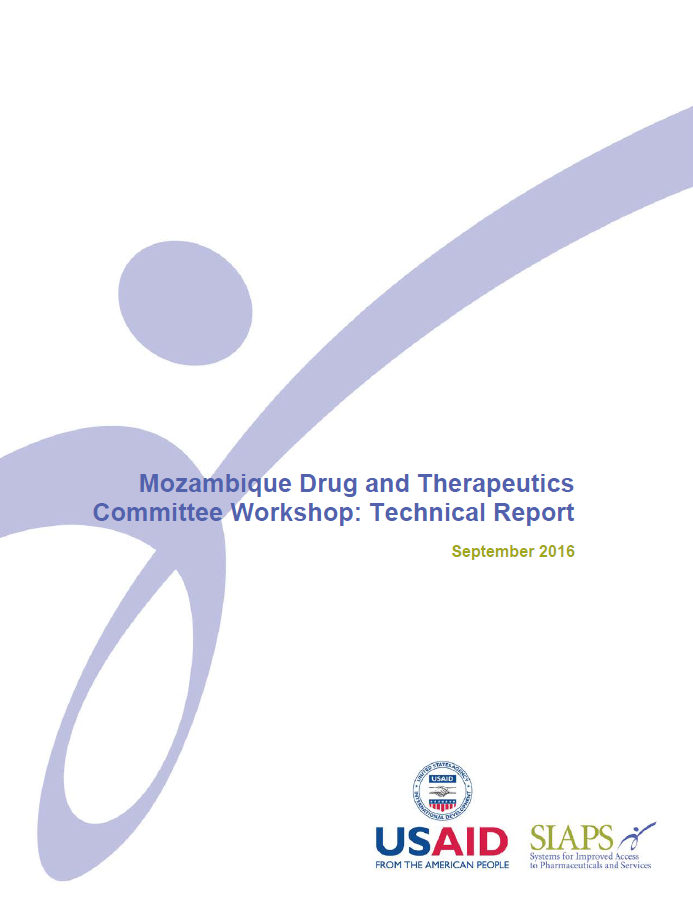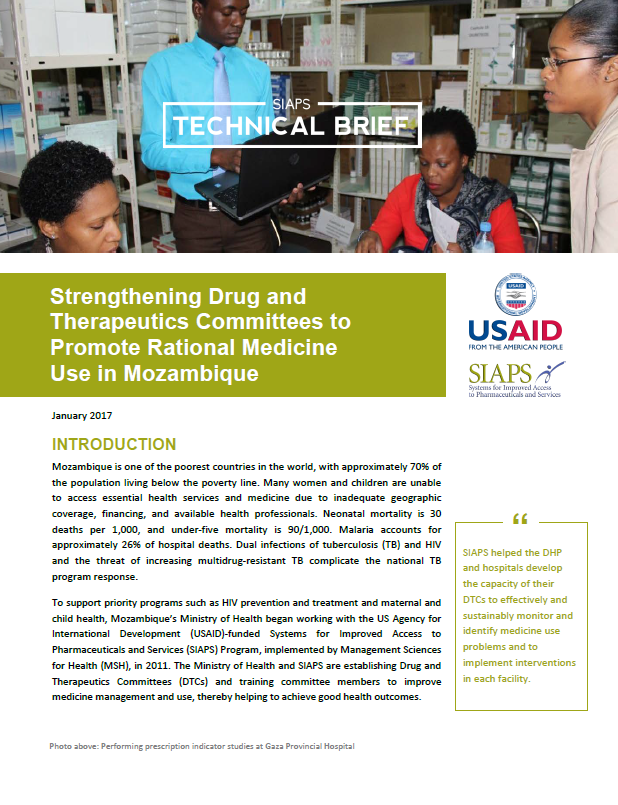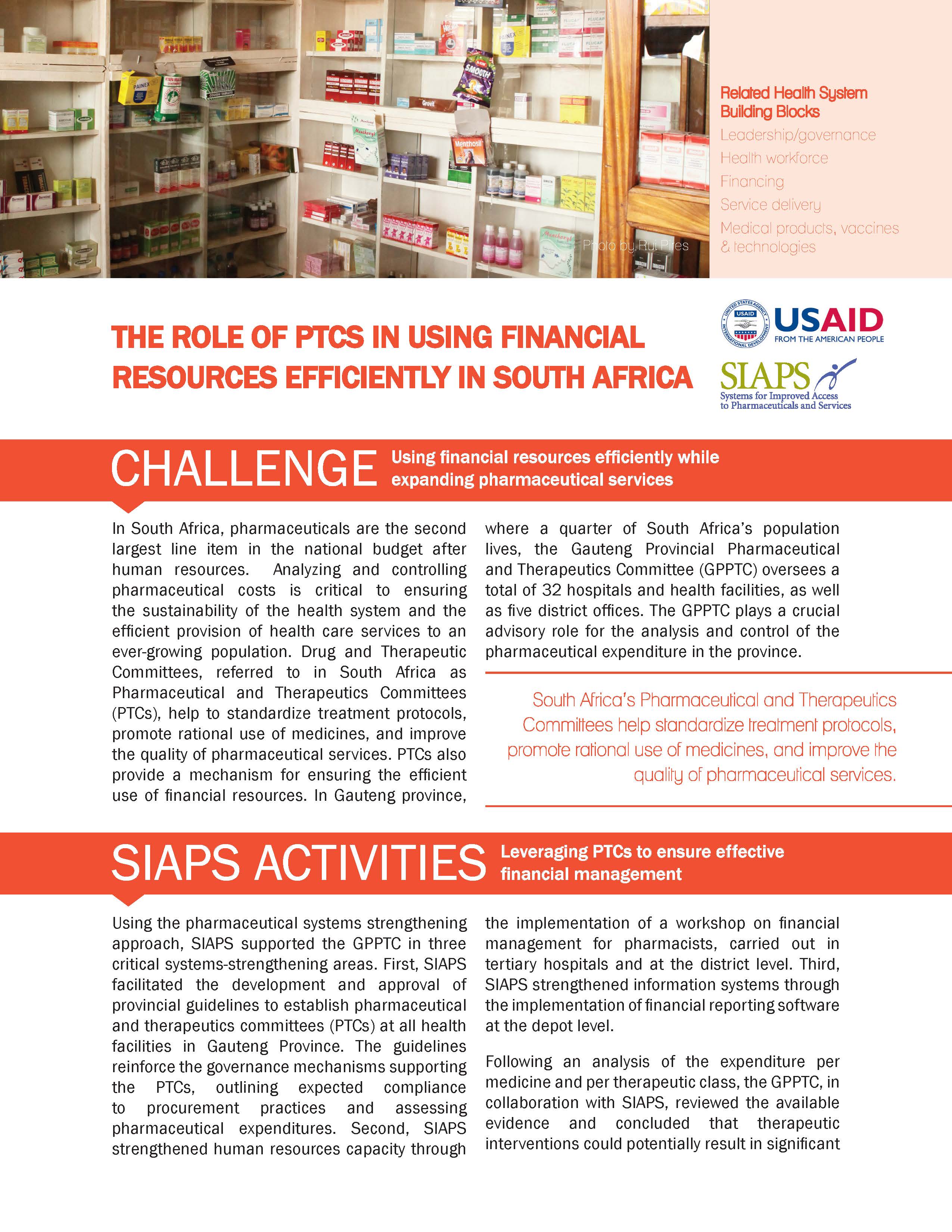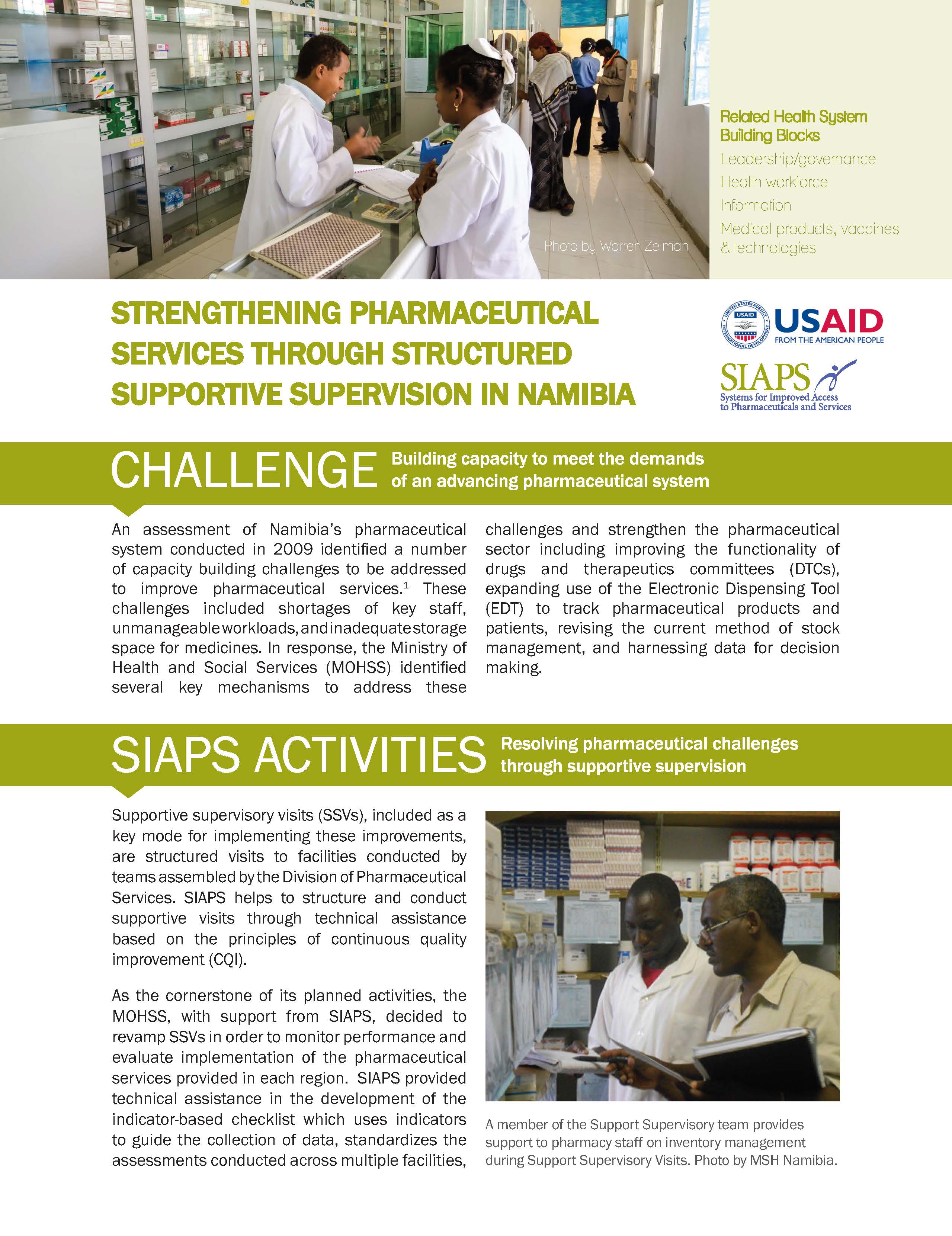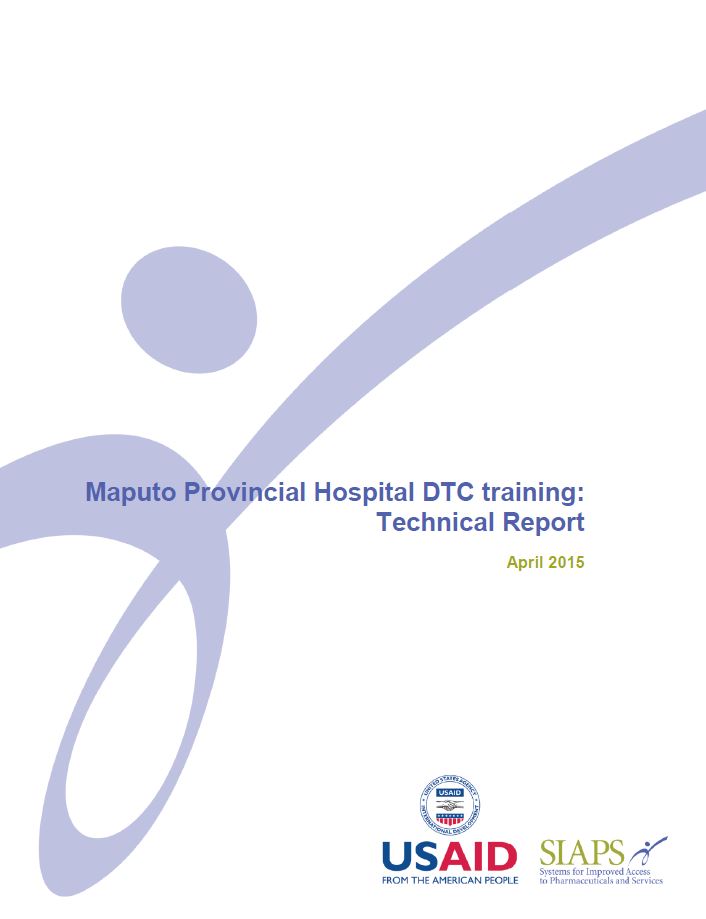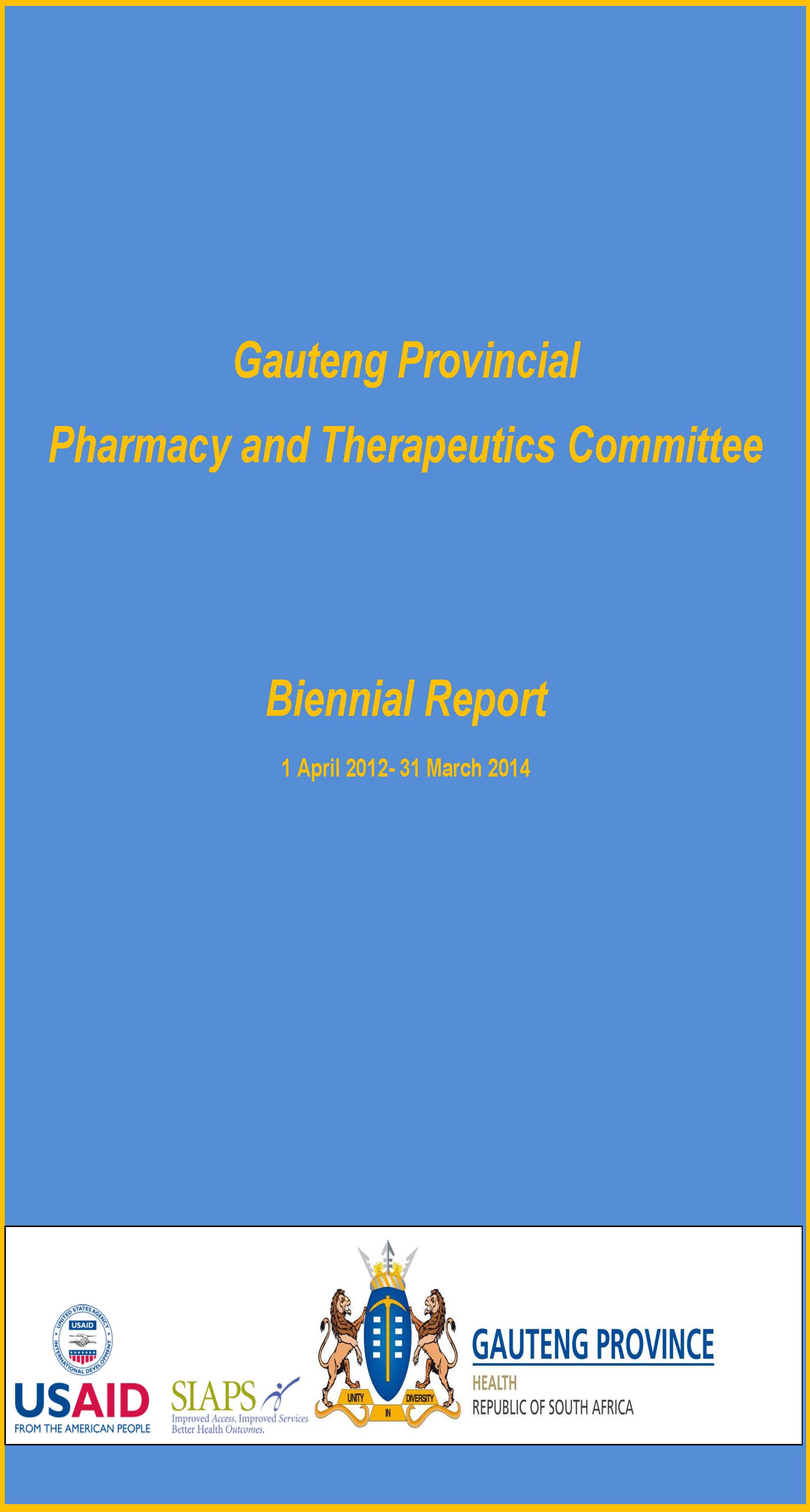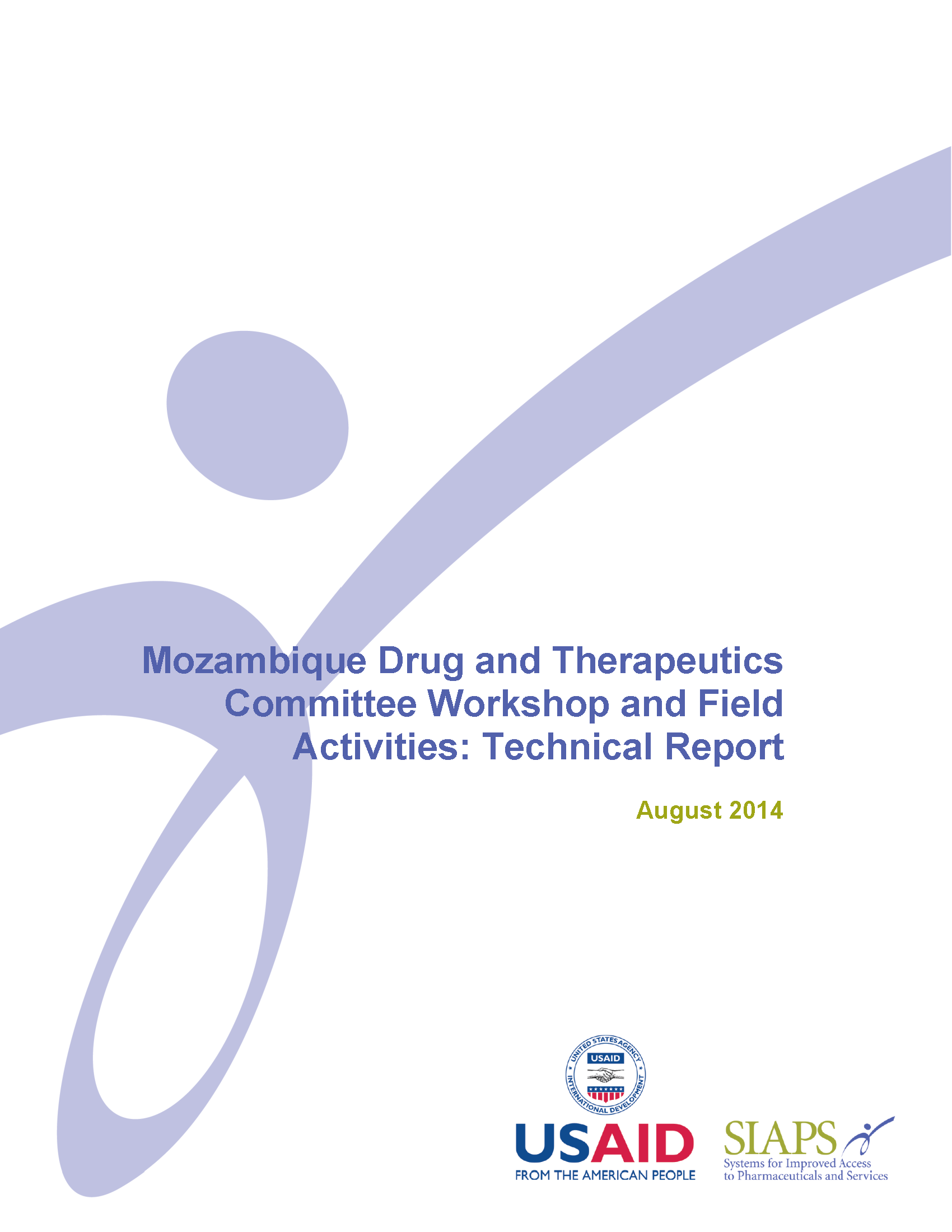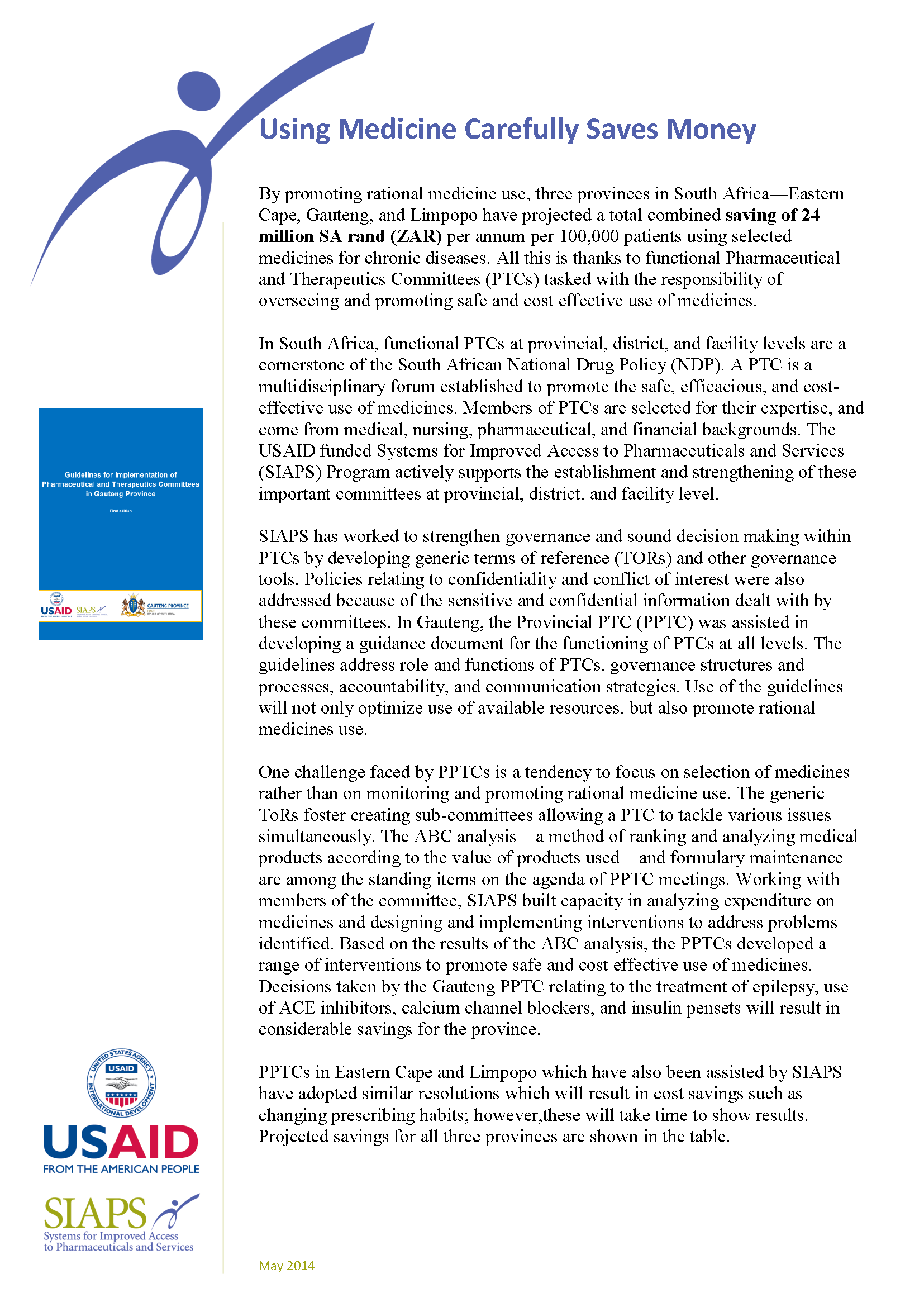The main purpose of this inventory is to serve as a reference to help stakeholders working in the pharmaceutical sector easily access and use already available SIAPS resources, including tools, experiences, and results. The document is also intended to serve as a technical legacy for SIAPS to support knowledge exchange and sustainability of related work. … Read more
AMR, Antimicrobial Resistance, Drug and Therapeutics Committee, essential medicines list, HIV/AIDS, Malaria., neglected tropical disease, pharmaceutical financing, pharmaceutical services, rational medicine use, RMNCH, standard treatment guidelines, Supply chain management, tuberculosis
SIAPS received two years of funding from the U.S. Agency for International Development (USAID) in September 2015 to provide technical assistance to rebuild and strengthen the post-Ebola pharmaceutical supply chain management system and improve the supply chain and rational medicine use in Sierra Leone. To support these goals, SIAPS provides technical assistance for systems strengthening activities … Read more
Inefficient and irrational use of medicines is a well-documented problem in both developed and developing countries. It leads to cost increases and adverse clinical effects for patients. The inappropriate use of medicine can be reduced if health care professionals involved in the different aspects of medicine use promote good practices for medicine management and use. … Read more
Mozambique is one of the poorest countries in the world, with approximately 70% of the population living below the poverty line. Many women and children are unable to access essential health services and medicine due to inadequate geographic coverage, financing, and available health professionals. Neonatal mortality is 30 deaths per 1,000, and under-five mortality is … Read more
Using the pharmaceutical systems strengthening approach, SIAPS supported the GPPTC in three critical systems-strengthening areas. First, SIAPS facilitated the development and approval of provincial guidelines to establish pharmaceutical and therapeutics committees (PTCs) at all health facilities in Gauteng Province. The guidelines reinforce the governance mechanisms supporting the PTCs, outlining expected compliance to procurement practices and assessing pharmaceutical expenditures. Second, SIAPS strengthened human resources capacity through the implementation … Read more
An assessment of Namibia’s pharmaceutical system conducted in 2009 identified a number of capacity building challenges to be addressed to improve pharmaceutical services. These challenges included shortages of key staff, unmanageable workloads, and inadequate storage space for medicines. In response, the Ministry of Health and Social Services (MOHSS) identified several key mechanisms to address these challenges and strengthen the pharmaceutical sector including improving the functionality … Read more
The Systems for Improving Access to Pharmaceuticals and Services (SIAPS) Program Mozambique has been working with DFH and partners in the pharmaceutical sector and in priority health programs to assist pharmaceutical services in improving the availability of pharmaceutical products and appropriate use at the service delivery points with the aim of achieving desired health outcomes. … Read more
In South Africa, the provision of pharmaceutical services is guided by the National Drug Policy (NDP), which was adopted in 1996. The health goal of the NDP is ―to ensure the availability and accessibility of essential medicines to all citizens. Within a resource-constrained environment, irrational medicine use has the potential to compromise available health care … Read more
The irrational use of medicines is a pervasive problem that threatens healthcare systems and quality of patient care in countries worldwide. The World Health Organization (WHO) estimates that 50% of patients receive unnecessary medicines and half of patients take their medicines incorrectly. Irrational use behaviors include polypharmacy (the use of too many medicines per patient); … Read more
SIAPS/South Africa works with government health offices and health facilities to build the capacity of Pharmaceutical and Therapeutics Committees (PTCs). PTCs oversee and promote safe and cost effective use of medicines. In three South African provinces, rational medicine use has resulted in significant cost savings.
